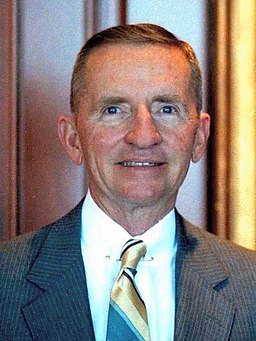First Things first, the point of divergence is that Desert Storm never happens. Iraq does not Invade Kuwait, and Coalition forces don't push them back. But to understand how this could happen, an understanding of the reasons for the Conflict that led to Desert Storm is needed.
In the case of Iraq, Saddam's Personal justification is not perfectly understood. However, likely reasons are as follows:
However, on the 23rd of July, 2 DAYS before Glaspie's meeting with Saddam, US Military Central Command (CENTCOM) Had already intercepted messages indicating that an invasion and annexation was imminent. They even passed these messages to the State Department the same day. But they were too late to pass this important information to Ambassador Glaspie, therefore she was not able to make the correct statement to Saddam.
So, Why did the United States and every other Coalition Country intervene? One word. Oil.
It's a common misconception that the 2003 invasion of Iraq was over Oil, this is false, America went in after Iraq claimed to have had a Nuclear Bomb. This was 2 years after 9/11, Do you really think that Bush would've been willing to take a chance on that?
The Invasion in 1991 however is about Oil. The Annexation of Kuwait lasted from the 2nd of August to the 4th of August 1990. Now, Iraq was within striking distance of Saudi Oil Extraction Facilities. If Hussein decided that Kuwait wouldn't be enough, and invaded to take those as well, Iraq would then have control over the majority of the Global Oil Supply at the time. This of course would be a threat to Western Strategic Interests, and George H. W. Bush ordered Operation Desert Shield on August 7th, which was a massive buildup of American troops on the Saudi Iraqi Border in preparation for the Counterinvasion.
So, to Avoid the Gulf War, and not have any American troops in the Islamic Holy Land for Al Quaeda to get pissed over, We just need either CENTCOM to intercept the invasion information a week earlier or to have the State Department able to get the proper info to Glaspie in time.
So that's our POD: Glaspie gets the correct information and knows that Iraq is going to invade and annex Kuwait.
so on the 25th, She basically tells Saddam not to fuck with Kuwait or the US will rip his Nuts off.
In the case of Iraq, Saddam's Personal justification is not perfectly understood. However, likely reasons are as follows:
- To Gain access to the large oil Deposits that Kuwait sits on
- To be able to have access to a Seaport, which Iraq never had.
- To be able to extend the range of Iraqi SCUD Missiles.
However, on the 23rd of July, 2 DAYS before Glaspie's meeting with Saddam, US Military Central Command (CENTCOM) Had already intercepted messages indicating that an invasion and annexation was imminent. They even passed these messages to the State Department the same day. But they were too late to pass this important information to Ambassador Glaspie, therefore she was not able to make the correct statement to Saddam.
So, Why did the United States and every other Coalition Country intervene? One word. Oil.
It's a common misconception that the 2003 invasion of Iraq was over Oil, this is false, America went in after Iraq claimed to have had a Nuclear Bomb. This was 2 years after 9/11, Do you really think that Bush would've been willing to take a chance on that?
The Invasion in 1991 however is about Oil. The Annexation of Kuwait lasted from the 2nd of August to the 4th of August 1990. Now, Iraq was within striking distance of Saudi Oil Extraction Facilities. If Hussein decided that Kuwait wouldn't be enough, and invaded to take those as well, Iraq would then have control over the majority of the Global Oil Supply at the time. This of course would be a threat to Western Strategic Interests, and George H. W. Bush ordered Operation Desert Shield on August 7th, which was a massive buildup of American troops on the Saudi Iraqi Border in preparation for the Counterinvasion.
So, to Avoid the Gulf War, and not have any American troops in the Islamic Holy Land for Al Quaeda to get pissed over, We just need either CENTCOM to intercept the invasion information a week earlier or to have the State Department able to get the proper info to Glaspie in time.
So that's our POD: Glaspie gets the correct information and knows that Iraq is going to invade and annex Kuwait.
so on the 25th, She basically tells Saddam not to fuck with Kuwait or the US will rip his Nuts off.
